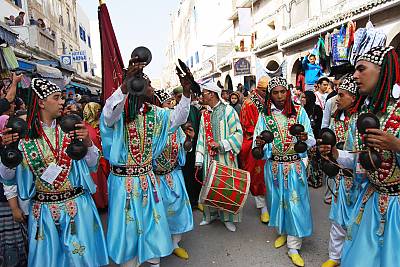Morocco has been affected by the pandemic of Covid-19 since March 1st, 2020. Among other measures, a health emergency state has been decided. A confinement has been set up for one month since March 20 and now extended until May 20. This means that ICH activities have been cancelled or postponed.
These examples can be given :
1. The programme Sauvegarde et valorisation des savoirs et savoir-faire menacés de disparition et liés à l’artisanat has been suspended. Workshops on the inventory have been postponed. As I’m a facilitator for these workshops, I could not deliver this work for the moment (see link 1 below).
2. At our institute, online courses are provided since March 16. A learning platform has been dedicated to this as it is shown in the link 2 below.
3. Research: with a group of colleagues, we have set up a virtual research project on the Covid-19 from the viewpoint of social and human sciences. Each researcher proposed a theme on which she/he begins her/his work. I proposed to work on the response of Amazigh (Berber) “traditional” poets named Inechaden to the pandemic. Many of them downloaded poems on YouTube. The work consists of transcribing the poems, the study of its content and message as well as the format chosen (video or audio), the images used and the whole characteristics of the performance. The objective is to learn more about ICH in times of crisis and the way it is used to support and accompany people during it.
4. In Morocco, wool shearing occurs between April and May each year. Shearers are professional men who go from a nomadic camp to another to shear sheep. While doing their work, they sing well-known songs transmitted from one generation to the other or, sometimes, new improvised songs. I received a video on WhatsApp from a village in the eastern High Atlas mountains with shearers doing their work while improvising songs on the Covid-19.
Relevant links:
1. Sauvegarde et valorisation des savoirs et savoir-faire menacés de disparition et liés à l’artisanat
2. www.insap.ac.ma
The designations employed and the presentation in the texts and documents referenced in this platform do not imply the expression of any opinion whatsoever on the part of UNESCO concerning the legal status of any country, territory, city or area or of its authorities or concerning the delimitation of its frontiers or boundaries.
